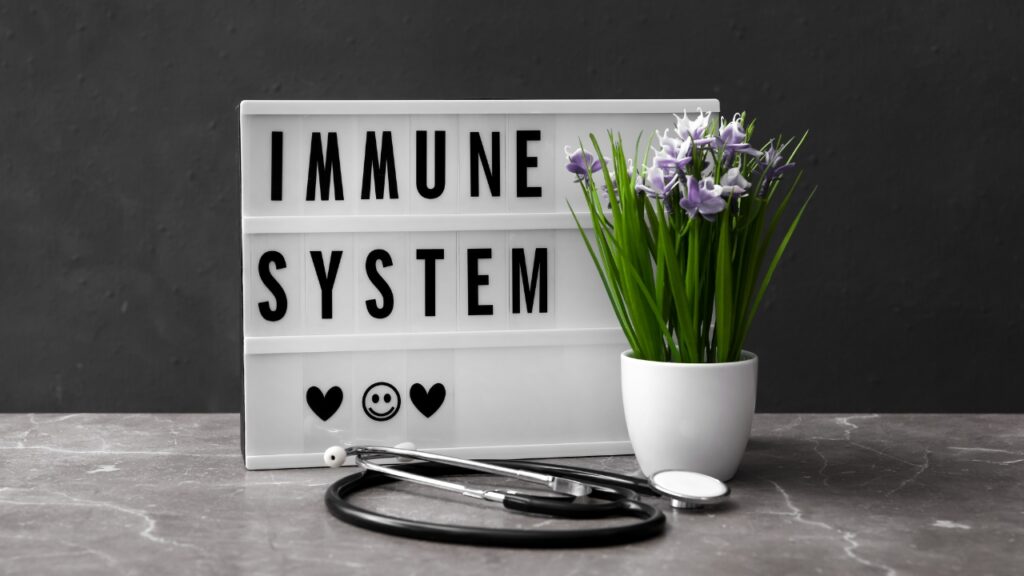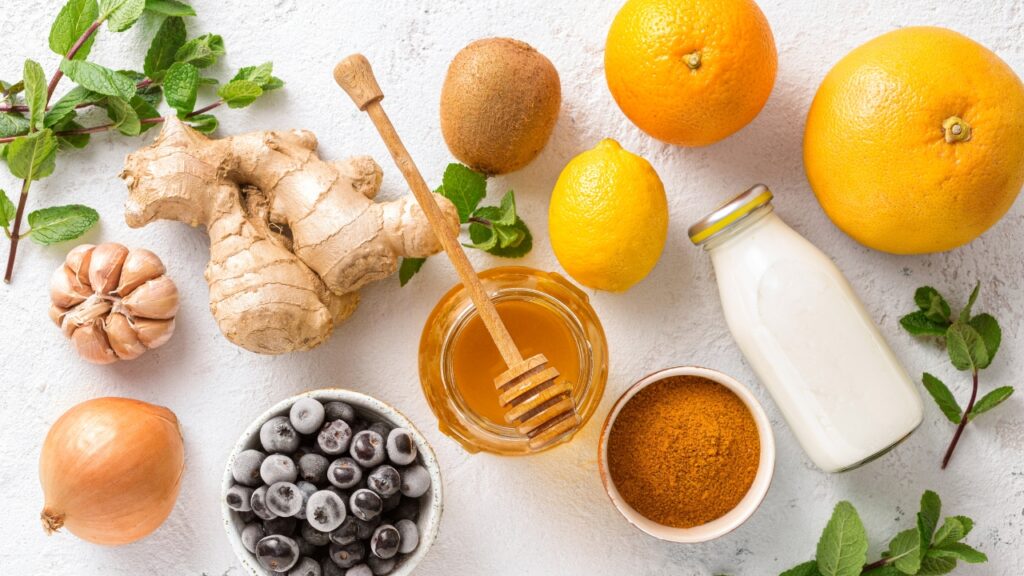Ever feel like you’re constantly battling sniffles, sneezes, or that pesky cough? You’re not alone! With the hustle and bustle of life, it’s easy for our immune systems to take a hit. But here’s the good news: you don’t always need to reach for those over-the-counter meds to keep your defenses strong. Instead, there are plenty of natural ways to boost your immune system that are effective and simple to incorporate into your daily routine. So, let’s dive right in!
The Immune System: Your Body’s Defender
Before we get into the nitty-gritty, let’s take a moment to understand the immune system. Think of it as your body’s army, fighting off invaders like bacteria, viruses, and other pathogens. It comprises a complex network of cells, tissues, and organs working together to keep you healthy. But, just like any army, it needs proper training and resources to function at its best. That’s where we come in!
Natural Ways to Boost Immune System: Lifestyle Changes

1. Get Moving: The Power of Exercise
You might be thinking, “But I’m so busy!” We get it; life can get hectic, but squeezing in some physical activity can work wonders for your immune system. Regular exercise helps improve circulation, reduce stress, and boost your mood, which can enhance your immune response.
- Aim for at least 150 minutes of moderate aerobic activity per week. This could be anything from brisk walking to cycling!
- Incorporate strength training twice a week. Lifting weights or doing body-weight exercises can be fun and rewarding!
2. Catch Those Zzzs: The Importance of Sleep
Sleep isn’t just a luxury; it’s a necessity! When you skimp on sleep, you’re not just feeling groggy; you’re putting your immune system on the back burner. Aim for 7-9 hours of quality sleep each night to allow your body to repair and rejuvenate.
- Create a bedtime routine. Wind down with calming activities like reading or meditating to signal to your body that it’s time to sleep.
- Limit screen time before bed. The blue light emitted by devices can mess with your sleep cycle, so try putting your phone down at least an hour before bedtime.
3. Manage Stress: Keep Calm and Carry On
Let’s face it: life can be stressful! However, chronic stress can weaken your immune system, making you more susceptible to illness. Finding effective stress management techniques can be a game-changer.
- Practice mindfulness or meditation. Even just 10 minutes a day can help clear your mind and reduce anxiety.
- Explore hobbies that make you happy. Whether gardening, painting, or playing music, engaging in enjoyable activities can help take your mind off stressors.
Natural Ways to Boost Immune System: Nutritional Choices

4. Eat a Rainbow: Nutrient-Rich Foods
What you eat significantly affects how well your immune system functions. The more colorful your plate, the better! Fruits and veggies are packed with vitamins, minerals, and antioxidants that can help fend off illness.
- Focus on whole foods. Choose fruits, vegetables, whole grains, nuts, and seeds over processed foods for optimal nutrition.
- Include garlic and onions in your diet. They have natural antibacterial and antiviral properties that boost your immune system.
5. Hydration: The Unsung Hero
We often forget how crucial hydration is for our health. Drinking enough water helps maintain your body’s balance, keeps your cells functioning properly, and aids in the production of lymph—the fluid that circulates in your immune system.
- Aim for at least 8 cups of water daily. Adjust based on your activity level and climate.
- Incorporate hydrating foods. Cucumbers, watermelon, and oranges can also help keep you hydrated!
6. Probiotics: The Good Bacteria
Probiotics are often called “good” bacteria essential for gut health. A healthy gut is directly linked to a robust immune system.
- Include fermented foods in your diet. Think yogurt, kefir, sauerkraut, and kimchi!
- Consider a probiotic supplement. This might be a helpful option if you’re not getting enough from your diet.
Natural Ways to Boost Immune System: Lifestyle Hacks
7. Sunshine and Fresh Air
Getting enough sunlight can be a natural way to boost your immune system, thanks to Vitamin D. It plays a significant role in immune response and can help reduce your risk of infections.
- Spend at least 15-20 minutes outside each day. Just make sure to wear sunscreen if you’re out longer!
- Consider a Vitamin D supplement, especially during winter when sunlight is scarce.
8. Herbal Allies: Nature’s Remedies
Certain herbs have been shown to bolster the immune system and promote overall health. Consider incorporating these into your routine:
- Elderberry: Known for its antiviral properties, elderberry syrup is famous during cold and flu season.
- Echinacea: Often used as a preventative measure to reduce the duration of colds and respiratory infections.
Conclusion
So there you have it! A treasure trove of natural ways to boost your immune system that are easy to integrate into your everyday life. Remember, small changes can lead to significant benefits over time. Whether getting more sleep, enjoying a rainbow of fruits and veggies, or managing stress, you’re setting yourself up for a healthier, happier life. So go ahead and give these tips a whirl! Your immune system will thank you!
FAQs About Natural Ways to Boost Immune System
1. How long does it take to see improvements in my immune system?
It varies from person to person, but many people start to notice improvements in their overall health and immunity within a few weeks of making lifestyle changes.
2. Can I rely solely on natural remedies to boost my immune system?
While natural methods can significantly enhance your immune system, it’s essential to consult with a healthcare professional if you’re experiencing persistent health issues.
3. Are there any foods to avoid for better immunity?
Processed foods, excess sugar, and high-fat diets can negatively impact your immune system. Try to minimize these in your diet for optimal health.
4. How do I know if my immune system is weak?
Signs of a weakened immune system can include frequent infections, prolonged illnesses, and general fatigue. If you’re concerned, consult a healthcare professional.


Leave a Reply